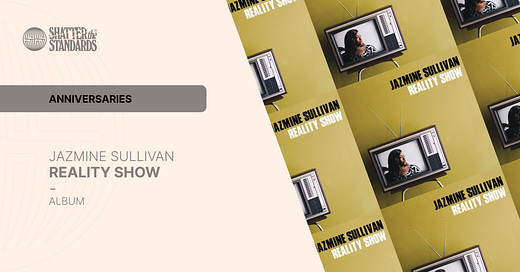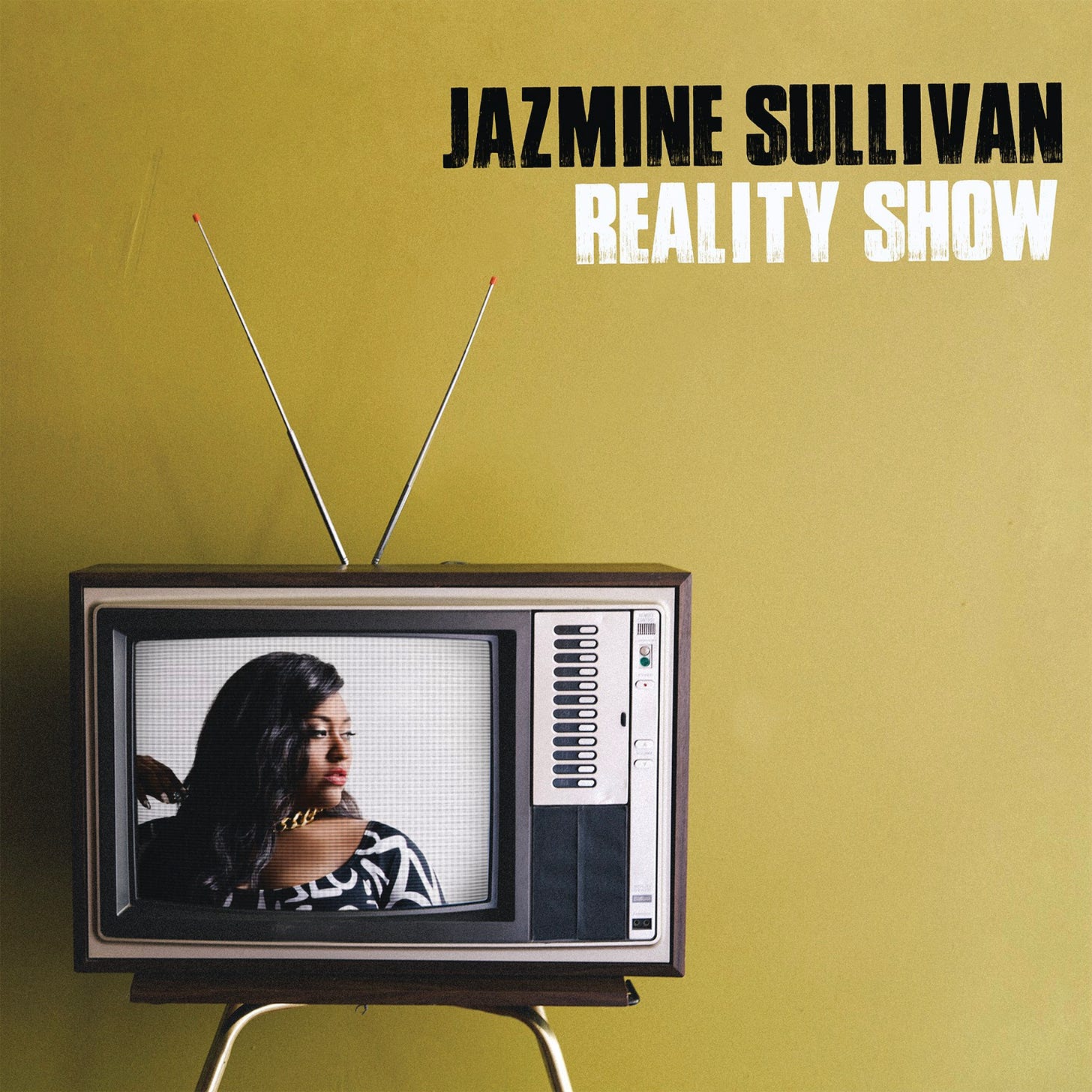Anniversaries: Reality Show by Jazmine Sullivan
Jazmine Sullivan assembled Reality Show around everyday life and personal struggles that often remain unspoken. Her approach involves turning raw feelings and observations into a series of songs.
During the years following her earlier successes, Jazmine Sullivan chose an unexpected path: a step back from the public eye. In 2011, she took a three-year break from the spotlight before releasing Reality Show. This pause was not a publicity stunt or a leisurely vacation. Instead, it involved a complex interplay of personal reflection, the need to regain creative footing, and the demands of an industry often known for its relentless pace. Understanding this decision requires more than recounting a simple timeline of events. It calls for a careful look at the pressures that shaped her choice, the quiet honesty she sought away from the microphone, and the life transitions that would ultimately influence the sound and message of her return.
Capturing Sullivan’s reasons for stepping away involves examining the forces within her control and those imposed upon her. Factors like personal growth, emotional well-being, and desire for artistry likely guided this detour. Also essential is recognizing her environment: the expectations from record labels, the commentary from critics, and the shifting trends in R&B and soul at the time. At the time, I was bummed. I constantly replayed Love Me Back as the soundtrack to my senior year in high school, especially “10 Seconds” and “Excuse Me.”
After stepping back from the spotlight following her previous album, Love Me Back, Sullivan reappeared in 2014 with “Dumb,” a collaboration with rapper Meek Mill. This track found her voice as powerful and expressive as ever, delivering candid perspectives on trust, infidelity, and self-respect. The song’s blend of crisp beats and bold vocals signaled that, even after a break, she could still channel deep emotions into her music without losing the edge that first drew attention to her work.
Sullivan followed that with “Forever Don’t Last,” a more stripped-down ballad that captures the heartache and reality of love’s impermanence. Her voice takes center stage against spare instrumentation and subtle guitar chords, revealing vulnerabilities and hard-earned wisdom. This softer, more introspective sound not only contrasts with “Dumb” but also reminds her fans of the soulful, honest storytelling that defined her earlier projects.
With these two singles, Sullivan showed that her return was no fleeting cameo; it was a reintroduction to an artist determined to bring fresh textures and hard truths to the R&B landscape. Rather than relying on old formulas, she took familiar themes of love and loss and approached them from a perspective shaped by personal and professional growth. The music she shared before the album’s official release suggested that her reentry into the industry would be a nod to her past strengths and a confident step toward the future.
Released in January 2015, Reality Show presents a portrait of contemporary life that blends personal truths with vignettes drawn from modern celebrity culture and everyday struggle. Rather than settling on a single narrative, the album’s concept relies on character studies—individuals navigating shifting moral codes, social pressures, and self-presentation in a world where authenticity contends with polished façades. “Mascara” offers a closer look at that dynamic. Its protagonist is a woman who manages her insecurities and self-worth through meticulous, surface-level perfection. Hair, makeup, and curated appearances become her defense against a society that rewards exterior glamor more than inner wholeness.
“Yeah, my hair and my ass fake, but so what?/I get my rent paid with it, and my tits get me trips/To places I can’t pronounce right/He said he’d keep it coming if I keep my body tight.”
Sullivan’s writing pulls no punches about the psychological toll of maintaining this image. Yet it neither ridicules nor condemns, instead humanizing a person trying to carve out a space for herself. “Let It Burn” shifts perspective, engaging with the emotional core of romantic love and borrowed nostalgia. Sullivan draws from the soulful heritage of classic R&B, case in point, After 7’s “Ready or Not,” channeling the warmth and longing that underscore genuine affection. While modern references and production choices place the track firmly in the present (thank you, KeY Wane), its themes call back to an era where open-hearted sincerity was a currency of connection.
Vocally, she is top-form. “Veins” confronts the rush and confusion that can follow intense emotional attachments, presenting a portrait of someone caught in a cycle of need and habit. The Motown-inspired “Stupid Girl” highlights the errors and regrets that arise from poor relationship decisions, calling attention to patterns people often recognize in themselves, even if they rarely speak about them openly; the disco-tinged “Stanley” addresses imbalances and misunderstandings between romantic partners, illustrating flawed affections and the quiet frustration that can accompany them, and “If You Dare” closes the collection with a push toward self-assurance, encouraging personal courage without relying on unrealistic promises.
Dahi-produced “Brand New” spotlights a woman savoring her hard-won financial come-up, illustrating the tension between recognition and the vulnerability that money and material status bring. “#HoodLove” explores affection in environments shaped by economic and social constraints. The relationship it depicts isn’t idealized nor presented as a caricature. Instead, it shows from a place of honesty, where imperfect individuals do their best to sustain loyalty, comfort, and hope despite real challenges.
Sullivan focuses on the desire to find opportunity in dire situations on one of the album’s standouts, “Silver Lining.” It takes a different angle, exploring a mindset that insists on hope even when circumstances feel unsteady. Instead of surrendering to hardship, the song’s subject matter forces herself to look for something positive, no matter how small. The album’s centerpiece, “Masterpiece (Mona Lisa),” touches on self-image and intrinsic value issues. Sullivan steps inside the psyche of someone who learns to appreciate her worth, framing herself as a piece of fine art worthy of admiration. While still acknowledging flaws and insecurities, this character reaches a place of pride. Rather than defining success and identity through others’ eyes, she reclaims the ability to see herself as something precious.
Across these songs, Sullivan’s conceptual lens focuses on human beings bracing against external judgments, personal insecurities, and societal expectations. Reality Show does not rely on broad commentary alone. Instead, it filters cultural observations through lived-in characters and heartfelt narratives, resulting in snapshots acknowledging the perplexities of modern identity, love, and self-expression. Together, these songs underscore the album’s central message: behind every façade of success, struggle, or confidence, there’s a genuine human life story, one that earns depth and meaning through honesty and self-awareness.




